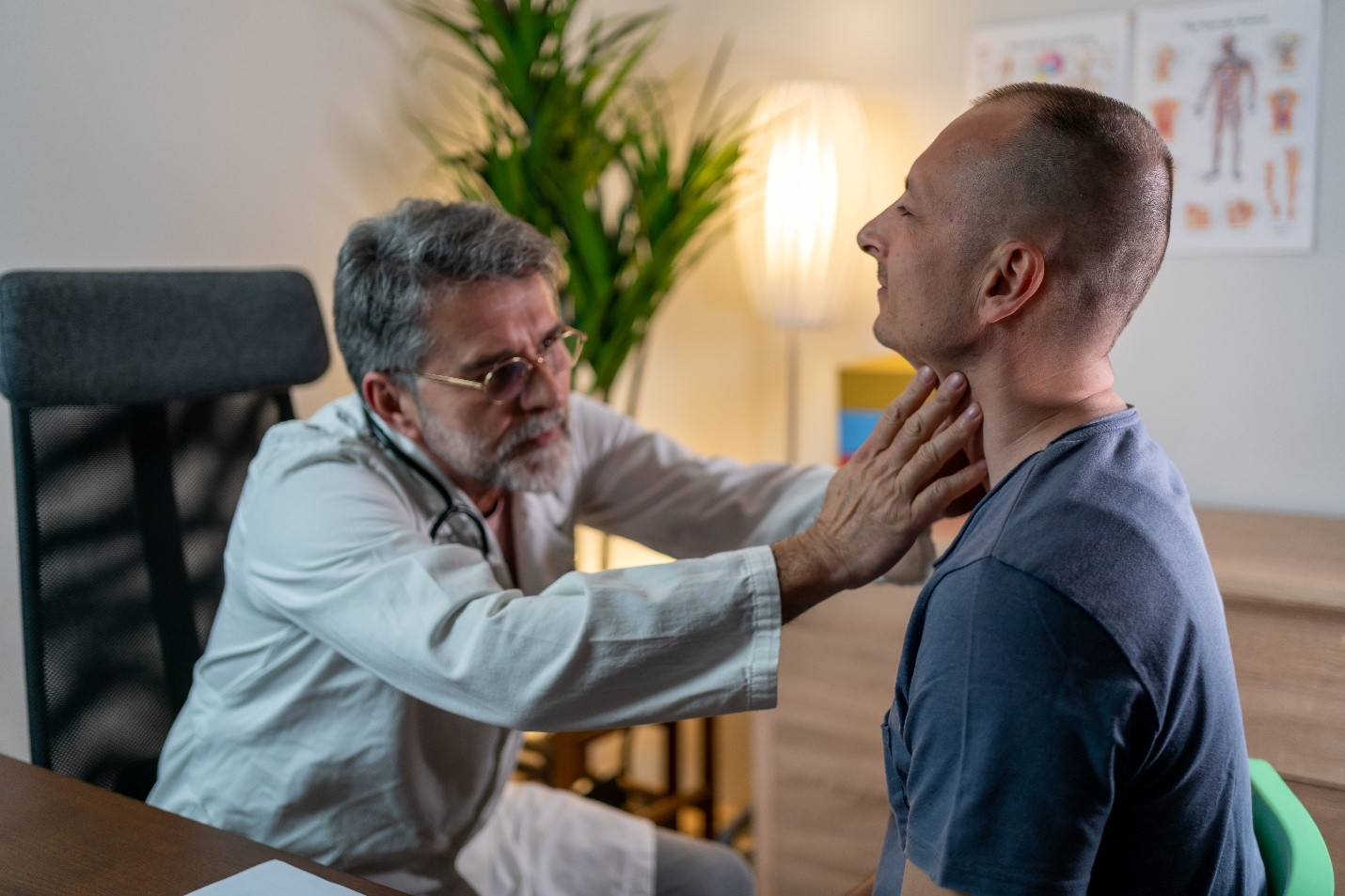What is a sore throat?
A sore throat means that your throat hurts. It feels irritated or scratchy. You may feel mild discomfort or a burning pain. A sore throat may feel worse when you swallow.
Sore throat (pharyngitis) can be caused by viruses (common) or group A strep bacteria (strep throat). Viral cases don’t need antibiotics; confirmed strep throat does. Possible complications from a sore throat include ear and sinus infections. Another complication is an abscess (buildup of pus) near your tonsils. There are various ways to soothe a sore throat depending on its cause.
Symptoms of a sore throat
- Throat pain, trouble swallowing
- Red, swollen throat; swollen neck glands
- Fever; sometimes headache or stomachache (strep)
Depending on the cause of your sore throat, other symptoms may be present:
- White spots on your throat or tonsils
- Red, swollen tonsils
- Skin rash
- Abdominal pain (usually in children)
- Vomiting (usually in children)
- Joint or muscle pain
What causes a sore throat?
- Viral infections (colds, flu)
- Bacterial infections (group A strep)
- Allergies, dry air, irritants like smoke
Most sore throats are caused by viruses, such as the cold or flu virus. Some of the more serious causes of sore throat include tonsillitis, strep throat, and mononucleosis (mono). Other causes include smoking, mouth breathing at night while you sleep, pollution, and allergies to pets, pollens and molds. General anesthesia during surgery can also cause a sore throat.
How is a sore throat diagnosed?
Your doctor examines the back of your throat and may use a swab to test for strep using a rapid antigen test. The test won’t tell if your sore throat is caused by something other than strep.
In symptomatic children, a negative rapid test is confirmed with a throat culture. A throat culture is a sample of bacteria collected by a swab. Adults usually don’t need a backup culture if rapid testing is negative.
If your doctor thinks you may have mono, they will probably do a blood test.
Can a sore throat be prevented or avoided?
- Wash hands often and cover coughs/sneezes
- Don’t share drinks or utensils
- Stay home when sick; if treated for strep, you’re far less contagious after starting antibiotics (follow clinician advice).
The best way to avoid a sore throat is to avoid getting sick. Avoid catching or spreading the viruses and bacteria that cause a sore throat.
Sore throat treatment
Viral sore throat: rest, fluids, acetaminophen/ibuprofen, lozenges, warm salt-water gargles; no antibiotics.
Strep throat: antibiotics after a positive test to shorten illness, reduce spread, and prevent complications; complete the full course.
If your sore throat is cause by the flu, your doctor may prescribe antiviral medicine. Antibiotics don’t work on viruses. Most sore throats caused by a cold or flu-type virus go away in a week to 10 days.
If your sore throat is caused by bacteria, your doctor will prescribe an antibiotic. You will feel better in a few days. It is important to take all your antibiotics. This reduces the risk that your sore throat will return.
Symptoms caused by mono can last for 4 weeks or more. The treatment for mono is rest and reduced exercise.
If a sore throat is caused by allergies, your doctor may talk to you about allergy triggers. They may recommend medicine for the allergy.
If your sore throat is caused by tonsillitis, you may need an operation. This is called a tonsillectomy. The surgery removes your tonsils. Most people who have tonsillitis don’t need surgery, however you might need surgery if you get severe tonsillitis often. You may need surgery if your tonsils are too big.
Living with a sore throat
Easing the pain of a sore throat is all you can do beyond treatment. There are a few ways to soothe a sore throat:
- Take over-the-counter pain medicine. This includes brand names such as Tylenol, Motrin, and Aleve. Do not give children younger than 18 aspirin. Aspirin may cause Reye’s syndrome, which can be fatal.
- Gargle with warm salt water. Mix 1 teaspoon of salt with 1 cup of water and stir.
- Suck on an over-the-counter throat lozenge. Hard candy works, too.
- Eat a popsicle.
- Use a humidifier in your bedroom. Move it to other rooms you spend time in.
- Drink liquids to keep your throat from getting dry. Also, this helps prevent dehydration.
Questions to ask your doctor
- Will hot drinks make my sore throat worse?
- Why does my sore throat hurt when I swallow?
- Does honey help soothe a sore throat?
- Should I go to work or school if I have a sore throat?
- Can a dry room cause a sore throat?
- Can certain medicines cause a sore throat?
ADVERTISEMENT
ADVERTISEMENT




